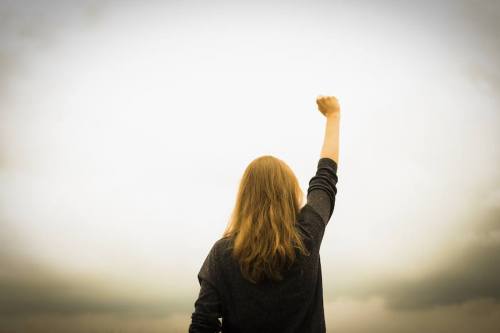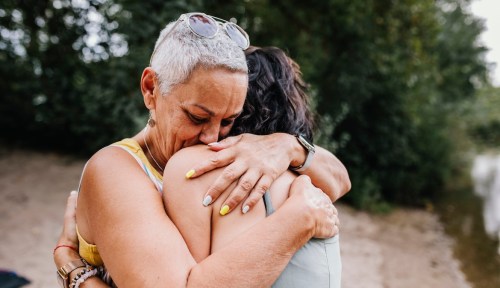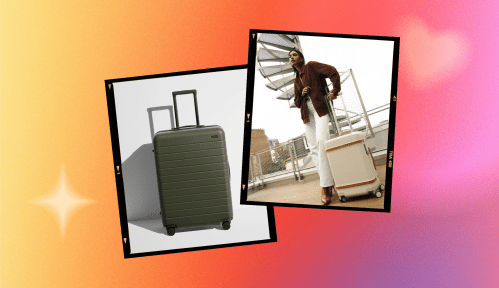There are seemingly innumerable important decisions to be made and initiatives to speak up about in the world right now—like abortion rights, climate change, and inclusivity, just to name a few—that sitting on the sidelines as a bystander feels like an unthinkable course of action.Protests and other forms of activism take place regularly in communities across the country, meaning there’s no shortage of ways to make yourself seen and your voice heard. But getting out there and fighting for what you believe in is tricky when you don’t know how to deal with anxiety that gets in the way of your protesting efforts.
Even when you care deeply about a cause (or causes), if you’re struggling with an anxiety disorder, as more than an estimated 40 million American adults do every year, hitting the picket lines or a City Hall meeting is tough because being around others, especially big crowds, sends you into a state of total panic. But according to pros, the best thing you can do in this case is treat the mental-health issue like the very thing you’re trying to protest: fight it head-on. David H. Rosmarin, PhD and founder and director of the Center for Anxiety, says exposure therapy is your friend for this, and whether you struggle with a panic disorder, social anxiety, obsessive-compulsive disorder, or anything else, the strategy can help you treat the issue so it no longer acts as an obstacle keeping you from your activism efforts.
Exposure therapy is, in short, “facing your fear,” Dr. Rosmarin says. But it doesn’t mean you need to forcibly throw yourself outside your comfort zone and go to a political fund-raiser or a rally right off the bat. Rather, along with your clinician, you can devise a plan. First, he says, you’ll work together to pinpoint the why of your anxieties and then “focus on your apprehensions.”
According to pros, the best thing you can do is treat the mental-health issue like the very thing you’re trying to protest: fight it head-on.
Let’s say, for instance, the thought of going to parades fills you with anxiety. Dr. Rosmarin suggests starting your exposure-therapy treatment by watching footage of a parade online, then by watching a real, live one from a window above the street, then going outside and watching it closer, then traveling to one in a new city, and so on, and so on. While the specific process varies from person to person and situation to situation, he says that under the right guidance, you’ll start to see and feel a positive difference in how you feel after three or four sessions.
If that treatment method sounds like a recipe for a panic attack, that’s because it kind of is—but a controlled one that can ultimately benefit you and improve your coping skills. As Dr. Rosmarin puts it, you’re most certainly “going to lose it in exposure therapy…it’s gonna be a mess, but that’s okay, you’re going to survive and you’re going to be stronger for it.”
In other words, if you decide to go to a march, and in the midst of it, you start to feel anxious about germs or being trampled (or whatever your internal trigger is)…go ahead and feel your feelings. “Let it wash over you,” Dr. Rosmarin assures, “It’s going to be a rough few minutes, but let it ride.”
On the flip side, let’s say you feel pressured to go to political events you don’t feel prepared to attend because you think it’ll “look bad” if you don’t go. Those cases of obligation-spurred anxiety are slightly different, but issues to face nonetheless. Instead of going because of your social anxiety, consider opting out of the event and working to treat the underlying fear.
And if you do sit out the events, there are plenty of ways you can make a huge impact regarding issues you’re passionate about. “While protests are an important part of resistance, they are by no means the only opportunity to have your voice heard,” says Sarah McBride, the National Press Secretary for the Human Rights Campaign. “Writing and calling your elected officials at the local, state, and federal level makes a big difference. Over the last two years, we’ve seen the power of calling and writing elected officials. Nothing impacts the policies we see more than the results of our elections, so we need people to volunteer their time in whatever way they can, donate, and, of course, vote if they are able.”
Other crowd-free means of helping activist efforts include phone banking, peer-to-peer texting, and even postcard writing, says Rock the Vote executive director Carolyn DeWitt. And you can keep your volunteer efforts literally close to home while still being helpful. “A volunteer reaching out to someone they know is more effective than a volunteer reaching out to a stranger so sharing information and leveraging relationships you have is perhaps the most important thing you can do,” she says.
Bottom line? No matter how you’re able to help various causes, whether it’s on the streets, at home, or both, you can and should prioritize helping yourself.
Now that you have a sense of how to deal with anxiety in the scope of activism efforts, check out these symptoms of an anxiety attack so you’re prepared. Also, here’s how to deal with social anxiety at the gym.
Sign Up for Our Daily Newsletter
Get all the latest in wellness, trends, food, fitness, beauty, and more delivered right to your inbox.
Got it, you've been added to our email list.











